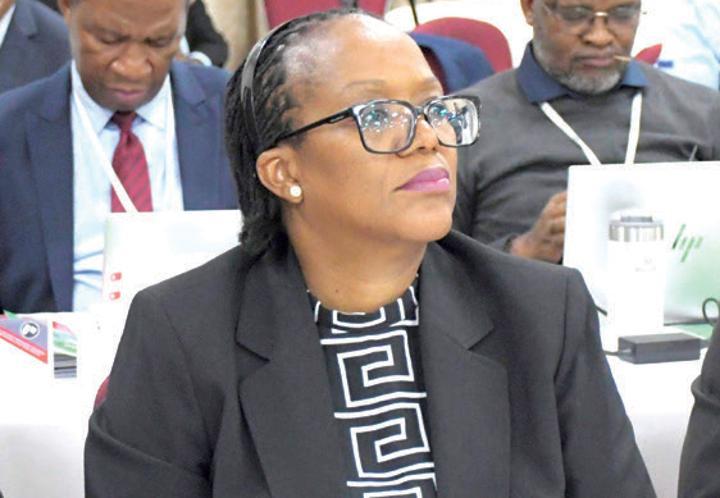Africa-Press – Malawi. Five political parties have been pushing for an independent audit of the elections management system as part of efforts to enhance elections integrity. Mec finally yielded, asking them to present a concept of the audit. Mec has since trashed itTwo weeks after the election management system issue blew up the temperatures inside a Public Affairs Committee (Pac) conference in Blantyre, Malawi Electoral Commission has reviewed the parties’ scope — and left them annoyed again.
It has rejected their longstanding call for an independent audit of the system.
But the parties have vowed they will fight on.
Mec has rejected the request for the audit citing legal, technical and operational concerns.
In a letter, dated June 5, 2025, signed by Mec Chair Anabel Mtalimanja and addressed to the Secretaries General of the Alliance for Democracy (Aford), Democratic Progressive Party (DPP), United Democratic Front (UDF), People’s Party (PP), and UTM, the Commission said that after thorough review, it had resolved not to permit the audit as outlined in the joint Concept Note and Scope the parties submitted on May 23.
Speaking during the Mec stakeholders meeting in Lilongwe yesterday, Director of Elections for the Democratic Progressive Party (DPP) Jean Mathanga challenged the Mec decision.
“We have seen the response; we will have to respond to it,” Mathanga said.
KAWANGA—We do not want to give room to riggingUTM Director of Elections Godfrey Kawanga said the party is surprised that Mec has come up with such a response.
“We are not satisfied with the response. Anything can happen with technology, and we do not want to give room to rigging.
“We need an independent audit of the server; we will challenge the decision,” Kawanga said.
Mtalimanja said it was within the right of the parties to respond.
In the letter explaining its decision, the Commission said the proposed audit did not point to any specific irregularities within the EMS [electoral management systems] and instead resembled a “structured forensic investigation” rather than a standard professional ICT assurance review.
“The Commission expressed concern that the scope presumed systemic failure without providing concrete evidence,” reads part of the letter.
Mec also criticised the political parties’ letter for including references to technologies such as automated polling stations and electronic vote counting — systems that are not part of Malawi’s 2025 electoral process.
It said the scope appeared to be based on generic documentation related to Smartmatic systems, whereas Malawi’s EMS is custom-developed.
“The scope has failed to accurately reflect the actual design, capabilities, and operational functions of the Commission’s EMS,” the letter reads.
Mec also raised alarm about the security implications of the proposed audit, arguing that allowing access to core systems and infrastructure could compromise institutional control and the integrity of the electoral process.
The Commission cited Section 76(4) of the Constitution, which guarantees its independence from any external direction or interference. It further noted that it has not received any formal petitions alleging irregularities in the electoral processes conducted thus far.
On anomalies in the voter register, the Commission reiterated its earlier position that remedial measures would be implemented to address them.
The Commission also said it had already disclosed duplicate entries and photographic anomalies during stakeholder consultations and insisted that it had been transparent throughout the process.
It dismissed claims that these anomalies were “discovered” by stakeholders, labelling such assertions as inaccurate.
PASSED PHASE—Voter registrationAt the Pac All-Stakeholder Conference two weeks ago, the election management system was one of the hotly debated issues as political parties insisted on their preference for manual transmission process.
Earlier, Mathanga wondered why Mec seemed to be changing its own decision from doing a manual transmission of results.
“The decision to go for manual transmission in 2020 was as a result of issues that made Malawians not trust hybrid transmission of results.
“We call upon the Commission to come out openly as to why it wants to make this surprise contradiction of its own decisions,” Mathanga said then.
She reiterated the call at the Pac conference wondering “Will the election not to take place if we stick with manual transmission?”
In response to the parties push at the Pac conference, Mtalimanja said the Commission would engage them and other stakeholders on their preference for a manual results transmission process.
“However,” she said, “This does not mean they will dictate our actions.”
Early in the week, Mec acknowledged receipt of the parties auditing concept, ahead of the meeting Friday.
In a statement delivered at a meeting with political parties yesterday – after the elections body had already issued its position on the audit request from the political parties –Mtalimanja said Mec had “meticulously and methodically” reviewed the issues the parties raised in their audit concept.
“The five parties will appreciate that our decision [to reject their query] has been guided by our mandate, electoral laws, and the overarching goal of enhancing the credibility of the 2025 General Election,” she said.
For More News And Analysis About Malawi Follow Africa-Press






